
Ludwig Aaron Gans (born 17 July 1794 in Celle, died 27 June 1871 in Frankfurt) (also spelled Ludwig Ahron Gans) was a German industrialist and owner of the company Cassella.

Ludwig Aaron Gans (born 17 July 1794 in Celle, died 27 June 1871 in Frankfurt) (also spelled Ludwig Ahron Gans) was a German industrialist and owner of the company Cassella.
Ludwig Aaron Gans was the son of Jewish parents Philipp Aaron Gans and Fanny Hanau from Celle. His family had been merchants in Celle for 150 years. In 1814 he moved in with the related Goldschmidt family in the Frankfurt Jewish Alley and joined the firm Cassel & Reiss, owned by Leopold Cassella, as an apprentice. Gans received the power of procuration and became the firm's effective leader in 1820.
In 1828, Gans married Rosette Goldschmidt (1805–1868), a niece and de facto adopted daughter of Leopold Cassella, and became a partner in the firm in the same year. From 1848 Ludwig Aaron Gans was the sole owner of Leopold Cassella & Co. Ludwig Aaron and Rosette Gans had six children: Henriette (Heidelbach), Marianne (Löwengard), Friedrich (Fritz) Ludwig, Pauline (Weinberg), Adolf and Leo Gans. The oldest son Friedrich Ludwig Gans joined Cassella & Co. as an apprentice in 1847 and would become a major industrialist and philanthropist in Germany; he converted to Christianity in 1885 and was ennobled in 1912. The younger son Leo Gans was also a noted industrialist, philanthropist and chemist.
Ludwig Aaron Gans is interred at the Old Jewish Cemetery, Frankfurt. [1] [2]

Leopold Zunz was the founder of academic Judaic Studies, the critical investigation of Jewish literature, hymnology and ritual. Zunz's historical investigations and contemporary writings had an important influence on contemporary Judaism.

Friedberg is a town and the capital of the Wetteraukreis district, in Hesse, Germany. It is located 26 km north of Frankfurt am Main. In 1966, the town hosted the sixth Hessentag state festival, in 1979 the 19th.
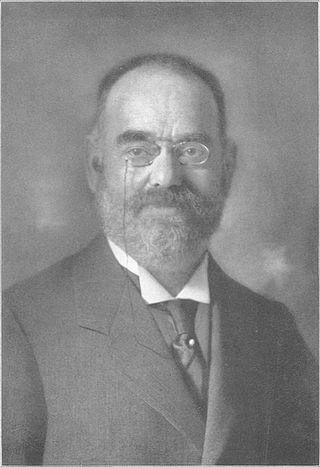
Ludwig Edinger was an influential German anatomist and neurologist and co-founder of the University of Frankfurt. In 1914 he was also appointed the first German professor of neurology.

Cassella AG, formerly Leopold Cassella & Co. and Cassella Farbwerke Mainkur AG, commonly known as Cassella, was a German chemical and pharmaceutical company with headquarters in Frankfurt am Main. Founded in 1798, in the Frankfurt Jewish Alley by Leopold Cassella, Cassella operated as an independent company until 1995, and was one of many predecessor companies of today's Sanofi. Its main products were dyes, drugs, cosmetics and various other chemical products. From 1949, Cassella focused increasingly on pharmaceuticals and cosmetics rather than its former primary focus, dyes. Much of its history is closely associated with the Gans family, a prominent family of industrialists and philanthropists and former owners of Cassella.
Stefan Meyer was an Austrian physicist involved in research on radioactivity. He became director of the Institute for Radium Research in Vienna and received the Lieben Prize in 1913 for his research on radium. He was the brother of Hans Leopold Meyer who was also awarded the Lieben Prize.
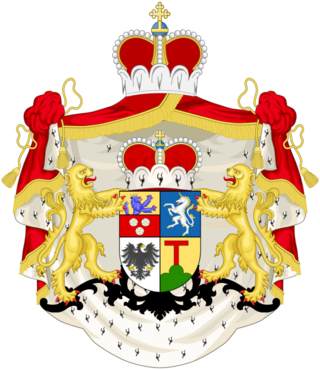
The House of Henckel-Donnersmarck is an old Austro-German noble family that originated in the former region of Spiš in Upper Hungary, now in Slovakia. The founder of the family was Henckel de Quintoforo in the 14/15th century. The original seat of the family was in Donnersmarck in then Kingdom of Hungary, in a part of what is present day Slovakia. In 1629, the family moved to Silesia, an Austrian/German state that was later annexed by Poland in 1945.

Leopold Cassella was a German businessman, known for having founded the company Cassella, one of many predecessor companies of today's Sanofi.

The Seyler family is a Swiss family, originally a patrician family from Liestal near Basel. Family members served as councillors and Schultheißen of Liestal from the 15th century, later also as members of the Grand Council of Basel. A Hamburg branch descended from the banker and renowned theatre director Abel Seyler became by marriage a part of the Berenberg banking dynasty, co-owners of Berenberg Bank and part of Hamburg's ruling class of Hanseaten.
The Bischoffsheim family is a family of German-Belgian Jewish descent known for their success in banking. It can be traced back to Raphaël Nathan Bischoffsheim, an army contractor native of Tauberbischofsheim, in the Electorate of Mainz. The family was particularly interwoven with the Goldschmidt family of Frankfurt am Main; the two families intermarried over the generations and jointly managed Bischoffsheim, Goldschmidt & Cie bank, which they eventually merged into Banque de Crédit et de Dépôt des Pays-Bas in 1863.

Andreae & Co. was the first court pharmacy in Hanover and was owned by members of the Andreae family from 1645 to 1803. It was founded in 1639 on Klappenburg by Dr. Joachim Jäger with a ducal privilege from Christian Louis, Duke of Brunswick-Lüneburg. The pharmacy quickly came to serve the ducal court and became the official court pharmacy. As Jäger became canonicus at Braunschweig, he sold the pharmacy to Johann Andreae in 1645 with permission from the Duke.
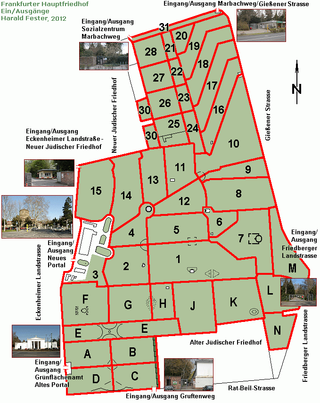

The Gans family is a prominent German family of industrialists and philanthropists from Frankfurt am Main. It is descended from Ludwig Aaron Gans, a Jewish businessman from Celle, who became an apprentice in the firm Caßel & Reiß in Frankfurt in 1814. In 1828, he married Rosette Goldschmidt (1805–1868), a niece and adopted daughter of the firm's owner Leopold Cassella, and was accepted as a partner of the firm. In 1848, Gans became sole owner of Leopold Cassella & Co., as the company was then named. Ludwig Aaron Gans was the father of the major industrialist Friedrich Ludwig von Gans, who was ennobled in 1912, and of the chemist and industrialist Leo Gans. The family converted from Judaism to Protestantism in the late 19th century.

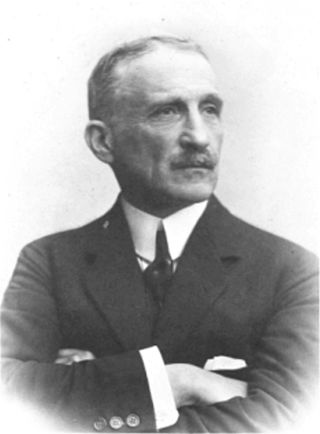
Arthur von Weinberg was a German chemist and industrialist.
Richard von Szilvinyi was a German industrialist.
The Stern family is a Jewish French banking family originally from Frankfurt. It traces back to Samuel Hayum Stern (1760–1819), who in the 1780s became a wine merchant in Frankfurt.
Johanna Goldschmidt was a German social activist, writer and philanthropist. She played an important role in supporting Friedrich Fröbel and in spreading the concept of the "kindergarten".
Emil Ladenburg was a Privy Councilor, German banker, and co-owner of the Frankfurt-based bank E. Ladenburg which was eventually purchased by Deutsche Bank in 1930.
Adela Stanton Coit was a women's suffragist and social reformer. She was a large proponent of the Ethical Movement, which was a movement that focused on providing humanism, or living "rich and moral lives without reference to religious doctrines or supernatural beliefs."
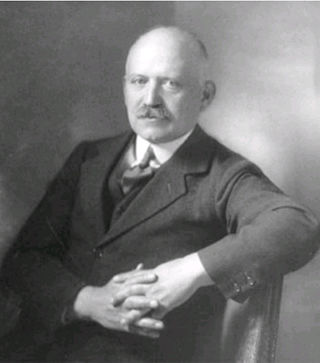
Carl von Weinberg was an important Jewish German chemist, entrepreneur, patron of the arts and philanthropist.